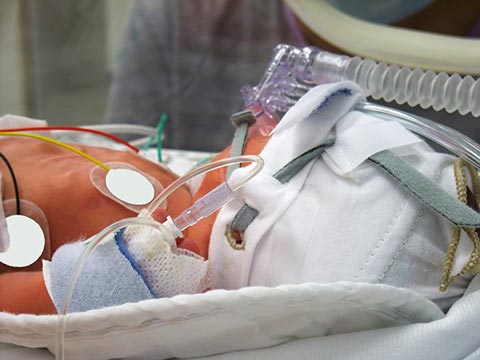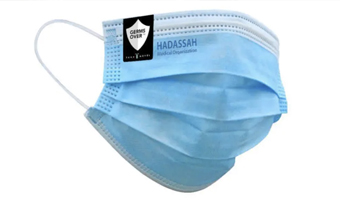
Hours before newborn Baby B was supposed to be released from Hadassah Hospital Mount Scopus, he was very pale and his breathing seemed off. “When the resident woke me, I knew this was a matter of life and death,” said Prof. Benjamin Bar-Oz, Director of Neonatology at Hadassah. Baby B’s ammonia level was at 680. The normal level
for a newborn is 40.
The little baby was born with methyl malonic aciduria, a rare genetic metabolic disease that affects 1 out of 50,000 to 100,000 people. Screening for methyl malonic aciduria is done before a newborn is released from the hospital, but it’s unusual for the disease to threaten brain function and to be life-threatening so soon after birth. Within hours Baby B’s ammonia levels soared to 1100!
“Without extreme intervention, this baby had no chance of survival,” said Dr. Nava Shaul-Lotan, Pediatric Medical Geneticist at Hadassah. Prof. Bar-Oz and Dr. Shaul-Lotan consulted with Dr. Oded Volovelsky, Pediatric Nephrologist at Hadassah, who ruled out dialysis as too risky. Dr. Volovelsky recommended Baby B undergo continuous renal replacement therapy (CRRT), a treatment that filters the blood gradually over an extended amount of time. In 2013, Dr. Volovelsky was a pediatric nephrology fellow at Cincinnati Children’s Hospital Medical Center and learned about CRRT. Dr. Volovelsky had Hadassah send Dr. Assaf Mendel, Pediatric Intensive Care Specialist, to Cincinnati to learn how to administer CRRT.
Baby B was transferred to Hadassah Hospital Ein Kerem, where he underwent 25 hours of CRRT. His ammonia levels plummeted to normal.
“We overcame the crisis,” said Dr. Shaul-Lotan. “Now we must work with the family to care for this child. Methyl malonic aciduria is a chronic illness. Baby B is alive because Hadassah doctors worked across disciplines and at all hours to save him. The multi-disciplinary team included specialists in neonatology, pediatric intensive care, nephrology, and metabolic diseases.”
“The Hadassah doctors worked tirelessly to help our baby,” said grandma Bracha, who was taking a turn with the baby. “In our family, my husband’s parents were first cousins, but this is the first problem we’ve had among hundreds of offspring. Baby B has an older
sister who is perfectly healthy. We never expected such a dangerous genetic disease.
“We appreciate the brilliance of the Hadassah personnel who were equipped to cope with this. They also give their whole heart. Their devotion goes way beyond their job obligations. We are very grateful to Hadassah.”
Learn more about the Hadassah Medical Organization.









